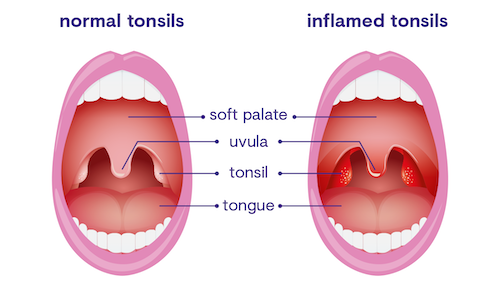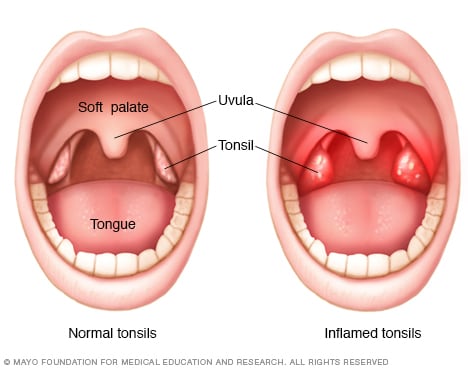
Tonsilitis is a very common illness. Most of us have experienced it at some point. It is an inflammation of the tonsils, which are small glandular structures in the back of the throat. These organs serve as the body’s first defense against microbes, since most enter the body through the mouth or nose. The tonsils produce several different types of immune cells, including macrophages. These cells attack infecting organisms and produce digestive enzymes. Serious infections can lead to painful swelling, inflammatory changes and other complications.
The tonsils are a part of the immune system that helps the body fight off infections. During the early years of life, the tonsils help the body form antibodies. Because of this, they are essential for the body’s health. However, some people can develop chronic tonsillitis. This could eventually result in a more serious condition such as a peritonsillar abscess or a serious ear infection.
If you experience bouts of tonsillitis, it may affect your normal functioning. You may need to take time off work or school to recover from the infection. Your doctor might also remove your adenoids, which hang down from the upper portion of your nasal cavity. Further information about your tonsils is available in a separate leaflet called "Tonsilitis what is?". And if you’re wondering if your tonsils are a part of your immune system, there’s a good chance you have tonsillitis.
The cause of tonsillitis is not known for sure. A viral infection is more likely to be the culprit. The symptoms of tonsillitis are similar to those of a cold, and you can treat them at home. It usually clears up on its own in about two weeks. Even if you don’t have the treatment needed, you should avoid people with an active infection to prevent the spread of the disease. The most important way to prevent a bout of tonsillitis is to avoid contact with these infected individuals.
The cause of tonsillitis is usually virus or bacteria. The condition is usually caused by a virus and can be treated at home, so it is not a contagious disease. If it is a bacterial infection, however, you can take antibiotics for a one-time injection or a series of pills to prevent the infection from coming back. Symptoms of tonsillitis are common and not contagious.

The most common treatment for tonsillitis is antibiotics. They will help you feel better within two to three days and can be taken as a tablet. In severe cases, the doctor may decide to remove the tonsils. If you have chronic tonsillitis, you will likely need to undergo a surgical procedure. This is done to remove the tonsils, which is a painful process. If you are unable to remove your tonsils, you may need a surgical procedure called a tonsillectomy.
The symptoms of tonsillitis will depend on the type of infection. The infection is usually caused by a virus. The symptoms of tonsillitis are similar to those of a cold. Usually, the symptoms of this infection are not severe. The condition will go away without treatment in two to three days. If you have a sore throat, your doctor will recommend antibiotics. Sometimes a tonsillectomy is required.
Depending on the cause of your tonsils, your doctor may recommend antibiotics. Symptoms of this disease include swelling and pain in the tonsils. You may have a fever and other symptoms. Sore throat is the most common symptom of tonsillitis. Your doctor may recommend a course of antibiotics. If your symptoms persist, you should contact your doctor immediately and get treatment advice online Kopertis10. In rare cases, a bacterial infection can cause swollen tonsils.
There are various causes of tonsillitis. It can be a viral infection or a bacterial infection. If you have a cold or acute tonsillitis, the symptoms may be similar to those of a cold. If your symptoms are similar to those of a cold, you may need to see a doctor for a proper diagnosis. If you have an acute infection, you should see your doctor as soon as possible.


